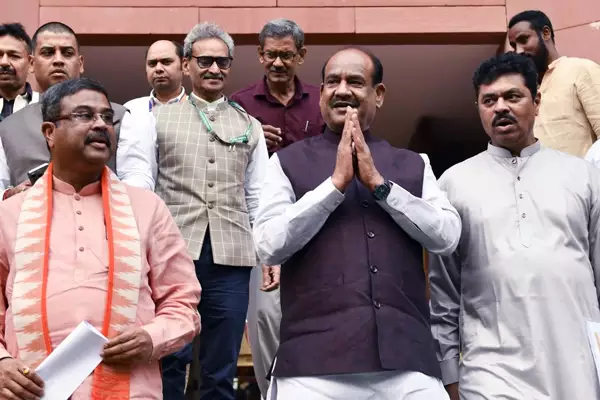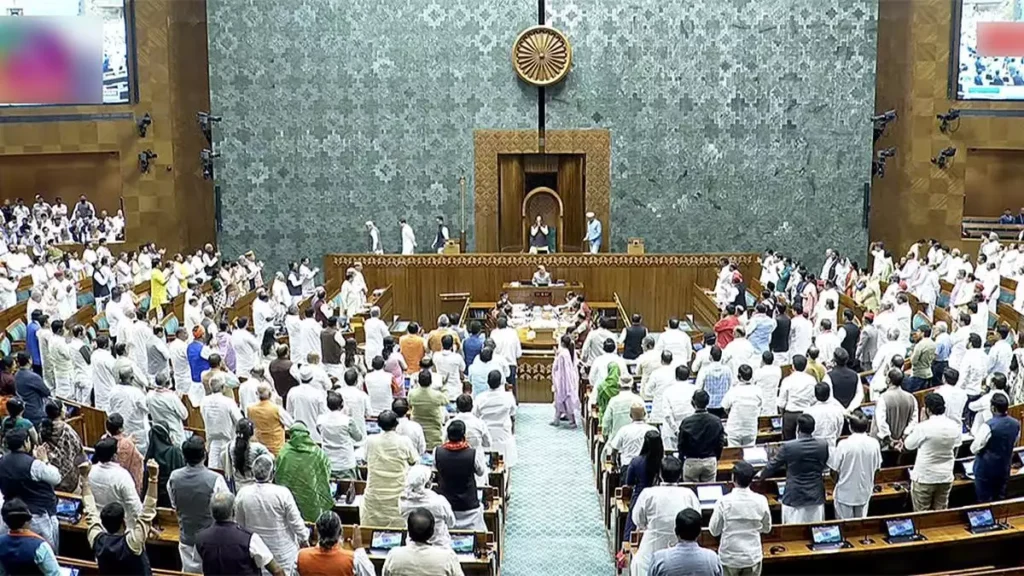After a rare contested Speaker election, the Opposition is seeking to elect a Deputy Speaker of the Lok Sabha within their ranks in the Budget session.
Table of Content
- Election Process
- Term of Office and Removal
- Duties and Powers
- Parliamentary Tradition
- Frequently Asked Questions (FAQs)
Election Process
- Article 93 of the Indian Constitution mandates the election of the Deputy Speaker by Lok Sabha members.
- There is no fixed timeframe for this election; it is to occur “as soon as may be” post the commencement of the Lok Sabha.
- The election date is set by the Speaker, and members are informed via a parliamentary bulletin.
- Elections are conducted using ballot paper.
Term of Office and Removal
- The Deputy Speaker’s term lasts until the dissolution of the Lok Sabha.
- Removal conditions include:
- Passage of a resolution by a majority of Lok Sabha members.
- Cessation of membership in the Lok Sabha.
- Resignation submitted in writing to the Speaker.
- A removal resolution requires a 14-day advance notice.
Duties and Powers
- Primary duty: Assist the Speaker in managing Lok Sabha functions.
- Acts as the presiding officer during the Speaker’s absence, ensuring discipline and order.
- Chairs joint sittings of Parliament if the Speaker is absent.
- Automatically becomes the chairman of any parliamentary committee they join.
- Allowed to participate in debates and vote on resolutions when not presiding.
- Can cast a deciding vote in the event of a tie during proceedings.
Parliamentary Tradition
- Traditionally, the Deputy Speaker’s post is given to an opposition member to ensure balanced proceedings.
- This tradition has seen exceptions based on political dynamics, with some Deputy Speakers being selected from allied parties during certain Lok Sabha terms.
Conclusion
The role of the Deputy Speaker is not only essential for the functioning of the Lok Sabha but also serves as a symbol of democratic principles and fairness. By overseeing proceedings, aiding in legislative functions, and providing a platform for minority voices, the Deputy Speaker fosters a cooperative and productive legislative environment.
Ref: Source
| UPSC IAS Preparation Resources | |
| Current Affairs Analysis | Topperspedia |
| GS Shots | Simply Explained |
| Daily Flash Cards | Daily Quiz |
Frequently Asked Questions (FAQs)
What does Article 93 of the Indian Constitution entail?
Article 93 mandates the election of the Deputy Speaker by Lok Sabha members, without a fixed timeframe, to be held “as soon as may be” after the Lok Sabha commences.
Can the Deputy Speaker participate in debates and vote?
Yes, the Deputy Speaker can participate in debates and vote on resolutions when not presiding over the Lok Sabha.
What is the parliamentary tradition regarding the selection of the Deputy Speaker?
Traditionally, the Deputy Speaker’s post is given to an opposition member, although there have been exceptions based on political dynamics.



